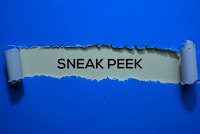Terry here, with this weeks topic (one that I really enjoyed) Tips for Absolute Beginners who want to write the novel they’ve always thought they had inside them.
On the door of my office I used to have a picture of two young women sitting in a hot tub. They had long-flowing locks and bored expressions. One was saying to the other, “I could write a novel, if I just had the time.”
So. First tip? Find the time. You don’t have to overwhelm yourself with vowing to hit the computer and type 5,000 words or write for eight hours, a day whichever comes first. That will never happen. Instead, help yourself ease into it. Be kind to yourself. It’s a new venture. Choose an amount of time that feels doable. Fifteen minutes? Thirty? An hour? You don’t have to work the same time every day, although eventually you may find that you work better at certain hours. But at first, be free-wheeling.
Important: you can’t go to bed until you’ve done it. That’s your one strict rule. You have to do it. Which is why setting a short amount of time is better at first. If it’s 10:30 at night and you realize you haven’t kept your promise to yourself to write, having to tackle fifteen minutes is a lot easier than facing an hour. That said, if you find you’ve done your short time and want to continue, go for it. But be your best friend and start by only requiring small chunks.
Second tip? You’ve been thinking about this novel for years and now’s your chance. If you sit down and say, “Write that book, now,” chances are you’ll freeze. So don’t tackle it right away. Limber up your writing skills. For the time being, just write some lines every day. They don’t have to be brilliant. Just describe something, write a scene, write a character sketch. None of it has to be part of your Great American Novel. The idea is to stretch your writing muscles. If you have trouble thinking of something to write, make a list of prompts, then cut them into strips and put them in an envelope. Each day, take one out and use that prompt to exercise your skills. Find some friends to do that with.
Third tip: Join a writing group or class. And use it wisely. Don’t be afraid to talk about your hesitation, your worries, your feeling of inauthenticity or inadequacy. On the other hand, don’t hesitate to share your dreams and hopes for your writing. Anybody in a writing group or class will share those same hopes and fears, dreams and worries.
Fourth Tip: Don’t tell people the story you want to write. Keep it to yourself. It’s fine to tell someone a general sentence or two about your prospective novel, (I’m planning a book about a woman who grew up in a small town and had plans to leave, but fate had other ideas). Keep it short. Otherwise, you risk depleting the energy you have for the ideas in the book. It’s almost as if by talking about it too much, your brain is convinced you’ve already written it! You will have some friends who prod you with more questions, but don’t take the bait. Just tell them you haven’t gotten to the point where you can articulate it clearly. Period.
Fifth Tip: Read! Read everything. It doesn’t have to be books like the one you want to write, but you also don’t have to shy away from those. It’s good to know what others are writing in your genre. Read good books. If you run across sentences, paragraphs, pages that really grab you, think about how the author did it. Read not just for pleasure, but for craft.
Sixth Tip: Encourage yourself. Lots of people have written books, and you can, too. Don’t be discouraged when you read a book so brilliant that you wish you had written it. Don’t say, “I’ll never be that good, so I may as well give up.” You have something to say and it will speak to some readers. That’s all you can ask for and hope for, that some readers will “get” what you’re telling them. That it will touch something in them. That it will teach them something about life. Give them that gift by honoring the book you have inside you.
Seventh Tip: Feed your creativity. Writing a book can give you moments of delight, but it can also be exhausting, debilitating, a lonely endeavor, and drudge work. And your creativity can starve from drudgery and lack of stimulation. So, give your imagination some stimulation. Go for walks. Go to a museum, a concert, coffee with a friend, set aside an afternoon to watch a stupid movie or try a recipe you’ve never tried.
Eighth: Make little goals and celebrate when you reach them. Made a sketchy outline of your book? Champagne! Wrote a tentative first chapter? Cake! Worked out a character’s bio? Buy yourself a little gift. Every step you take will bring you closer to seeing the book as you imagined it. It’s worth the work.
Finally: Put up a sign on your computer: Write the Damn Book!







This is genius! Kind, practical genius. Cx
ReplyDeleteOoo, I love being tagged "genius." Now on to working on my flawed WIP!
ReplyDeleteBoy, with Brenda's advice yesterday, this pretty well covers it. Beginning writers take note: You now have a distillation of how to do this from two much-published, successful writers.
ReplyDeleteThank you, Susan. Speaking to myself, also.
ReplyDelete